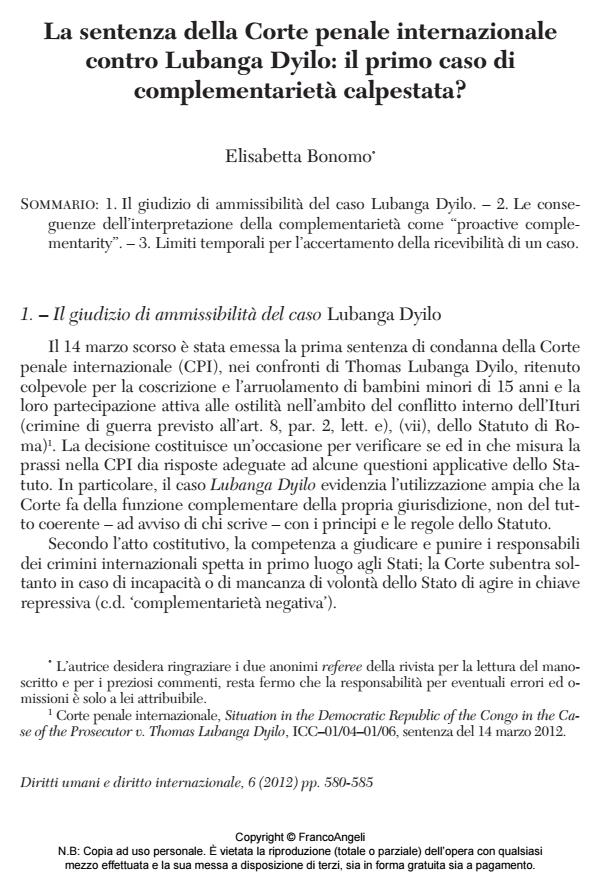La sentenza della Corte penale internazionale contro Lubanga Dyilo: il primo caso di complementarietà calpestata?
Titolo Rivista DIRITTI UMANI E DIRITTO INTERNAZIONALE
Autori/Curatori Elisabetta Bonomo
Anno di pubblicazione 2012 Fascicolo 2012/3
Lingua Italiano Numero pagine 6 P. 580-585 Dimensione file 87 KB
DOI 10.3280/DUDI2012-003006
Il DOI è il codice a barre della proprietà intellettuale: per saperne di più
clicca qui
Qui sotto puoi vedere in anteprima la prima pagina di questo articolo.
Se questo articolo ti interessa, lo puoi acquistare (e scaricare in formato pdf) seguendo le facili indicazioni per acquistare il download credit. Acquista Download Credits per scaricare questo Articolo in formato PDF

FrancoAngeli è membro della Publishers International Linking Association, Inc (PILA)associazione indipendente e non profit per facilitare (attraverso i servizi tecnologici implementati da CrossRef.org) l’accesso degli studiosi ai contenuti digitali nelle pubblicazioni professionali e scientifiche
On 14th March 2012 Mr Thomas Lubanga Dyilo was convicted by the International Criminal Court for the conscription of children under the age of 15 (war crimes pursuant to art. 8, par. 2, (e), (viii) of the Rome Statute). The Lubanga Dyilo case shows the wide interpteration given by the ICC to the principle of complemetarity, that seems contrary to the aims affirmed in the Preamble and those pursued by the Office of the Prosecutor. Indeed, the admissibility of the Lubanga Dyilo case appears to be inconsistent with the "proactive complemetarity" that should bring to a strict and objective interpretation of the concepts of "unwillingness" and "inability". Furthermore, the analysis is intended to demonstrate that the right moment to proceed with a formal verification of the admissibility should not come before the issue of a warrant of arrest.
Elisabetta Bonomo, La sentenza della Corte penale internazionale contro Lubanga Dyilo: il primo caso di complementarietà calpestata? in "DIRITTI UMANI E DIRITTO INTERNAZIONALE" 3/2012, pp 580-585, DOI: 10.3280/DUDI2012-003006